By Nutriworld | Dt. Dipanwita Saha
Want to eat healthier without going fully vegetarian? Try the flexitarian diet! This flexible, plant-based approach includes occasional meat, supports weight loss, heart health, and the environment—perfect for busy lifestyles seeking balance, variety, and sustainable food choices.
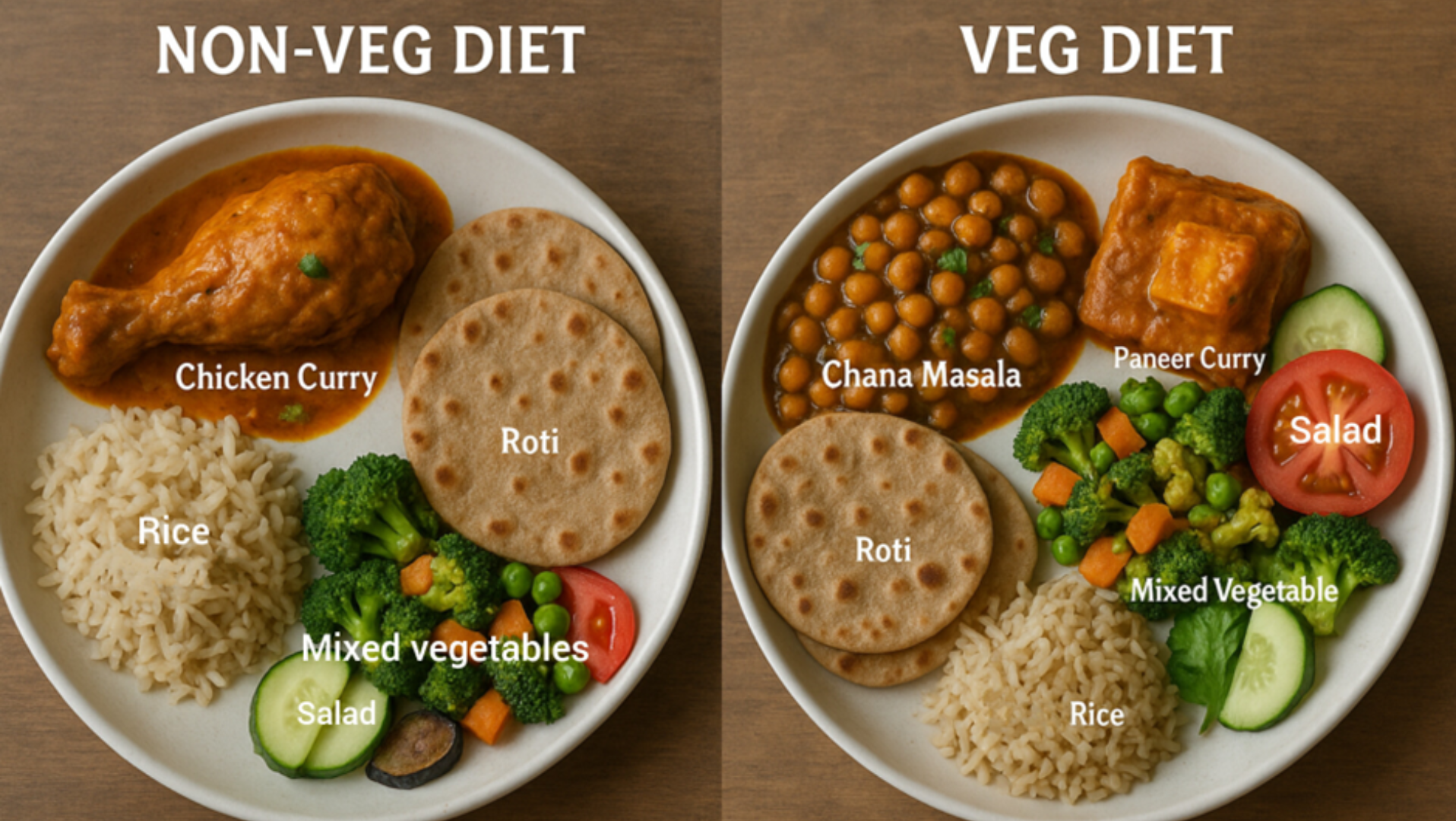
What Is the Flexitarian Diet?
The word Flexitarian comes from combining “flexible” and “vegetarian”. Coined by dietitian Dawn Jackson Blatner, it’s a style of eating that encourages mostly plant-based foods but still includes meat, dairy, or fish in moderation.
Unlike strict vegan or keto diets, there are no hard rules here. You don’t have to eliminate any food group completely. Instead, you prioritize veggies, fruits, whole grains, legumes, and plant proteins, while still allowing yourself the freedom to enjoy a burger or biryani occasionally.
Health Benefits Backed by Science:
A flexitarian diet is not just trendy-it’s effective. Here’s what research says:
- Weight Management: A 2020 study in the Journal of Nutrition showed that people on semi-vegetarian diets had lower body mass indexes (BMI) and less belly fat.
- Heart Health: More plant-based meals mean more fiber and antioxidants, which reduce LDL (bad) cholesterol and support blood pressure health.
- Diabetes Prevention:A 2019 meta-analysis from Clinical Nutrition found a link between semi-vegetarian diets and a significantly lower risk of type 2 diabetes.
- Gut Health: Plants fuel the good bacteria in your gut. That means better digestion, immunity, and mood balance.
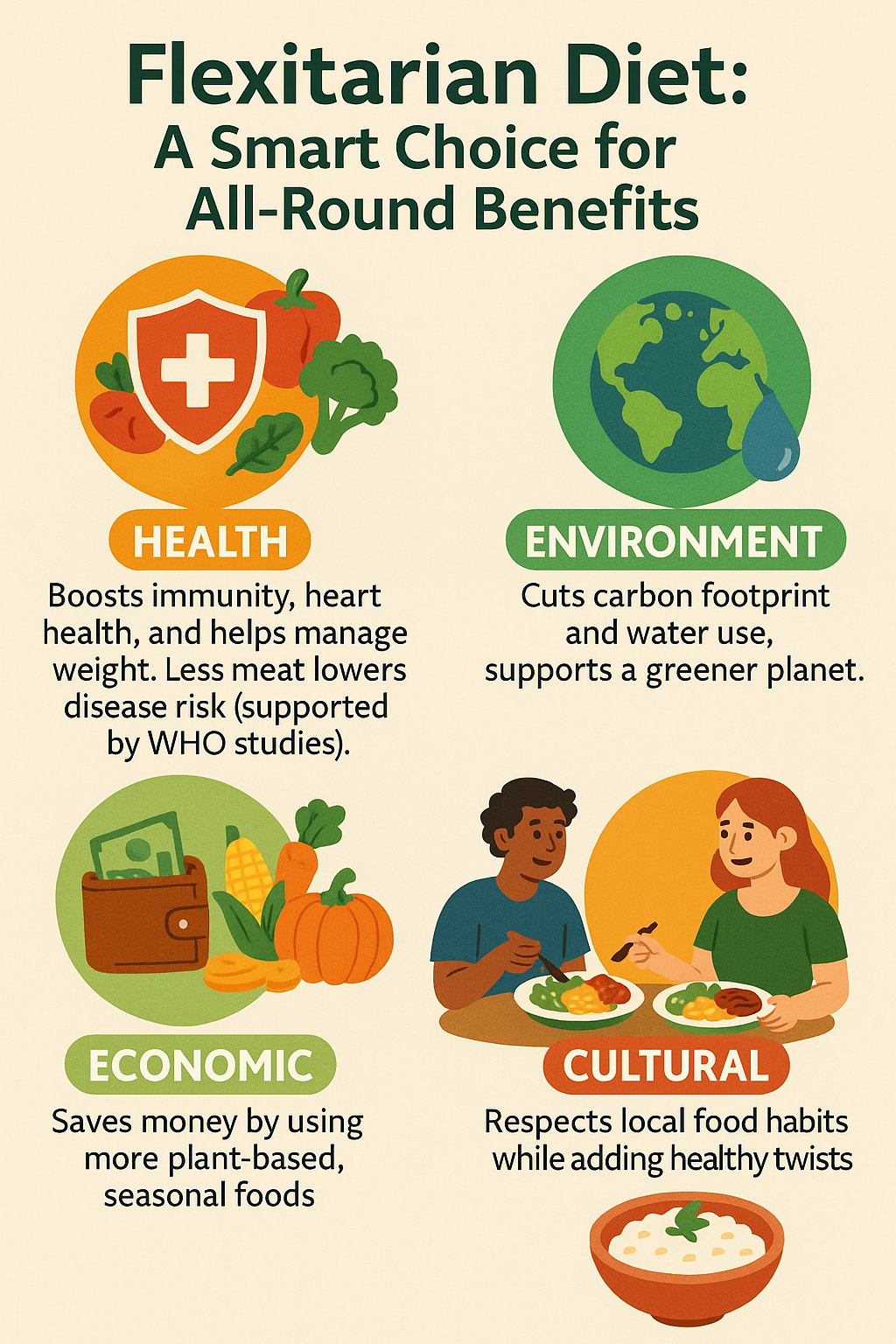
Simple Ways to Start Your Flexitarian Journey: (Beginner Friendly)
- Start Small – Begin by making 1–2 meat-free days each week.
- Swap Smartly – Replace meat with lentils, beans, tofu, or paneer.
- Fill Half Your Plate with Plants – Add more veggies, fruits, and whole grains.
- Choose Quality Meat – When eating meat, go for lean, organic, or local options.
- Experiment with Indian Veg Recipes – Try chana masala, aloo gobi, or rajma.
- Plan Ahead – Create simple weekly meal plans with easy veg and non-veg combos.
These tips make your transition effortless, delicious, and healthy!
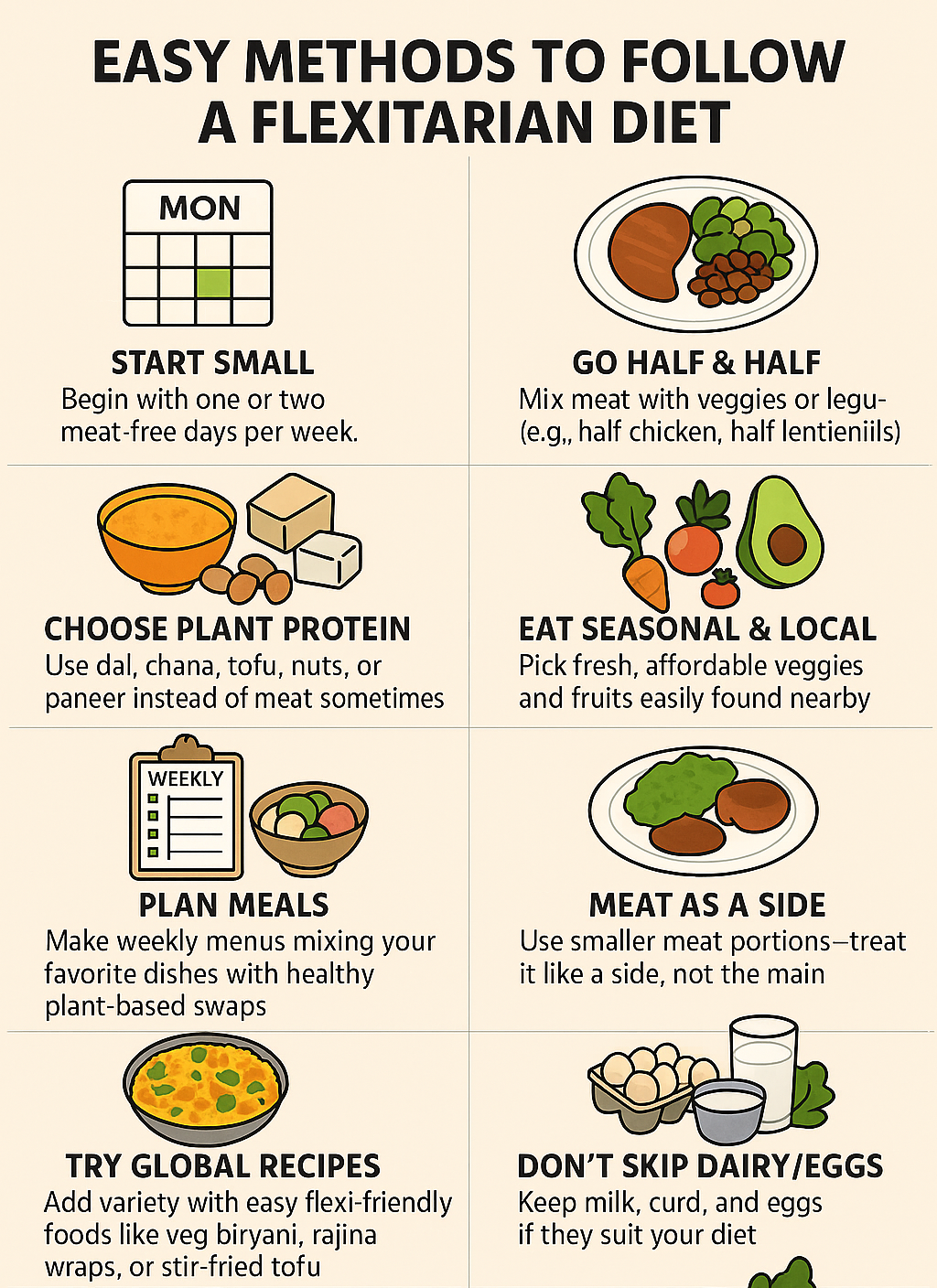
The Bigger Picture: Sustainability and Ethics -
Beyond health, flexitarianism also supports environmental and ethical goals. The production of meat-especially beef and lamb-generates high greenhouse gas emissions and requires more land and water compared to plant-based food.
Fact Check: According to the UN,
shifting towards plant-based diets could reduce global greenhouse gas emissions by up to 70% by 2050.
Choosing a flexitarian path helps protect the planet without forcing you to give up your cultural or personal food traditions.
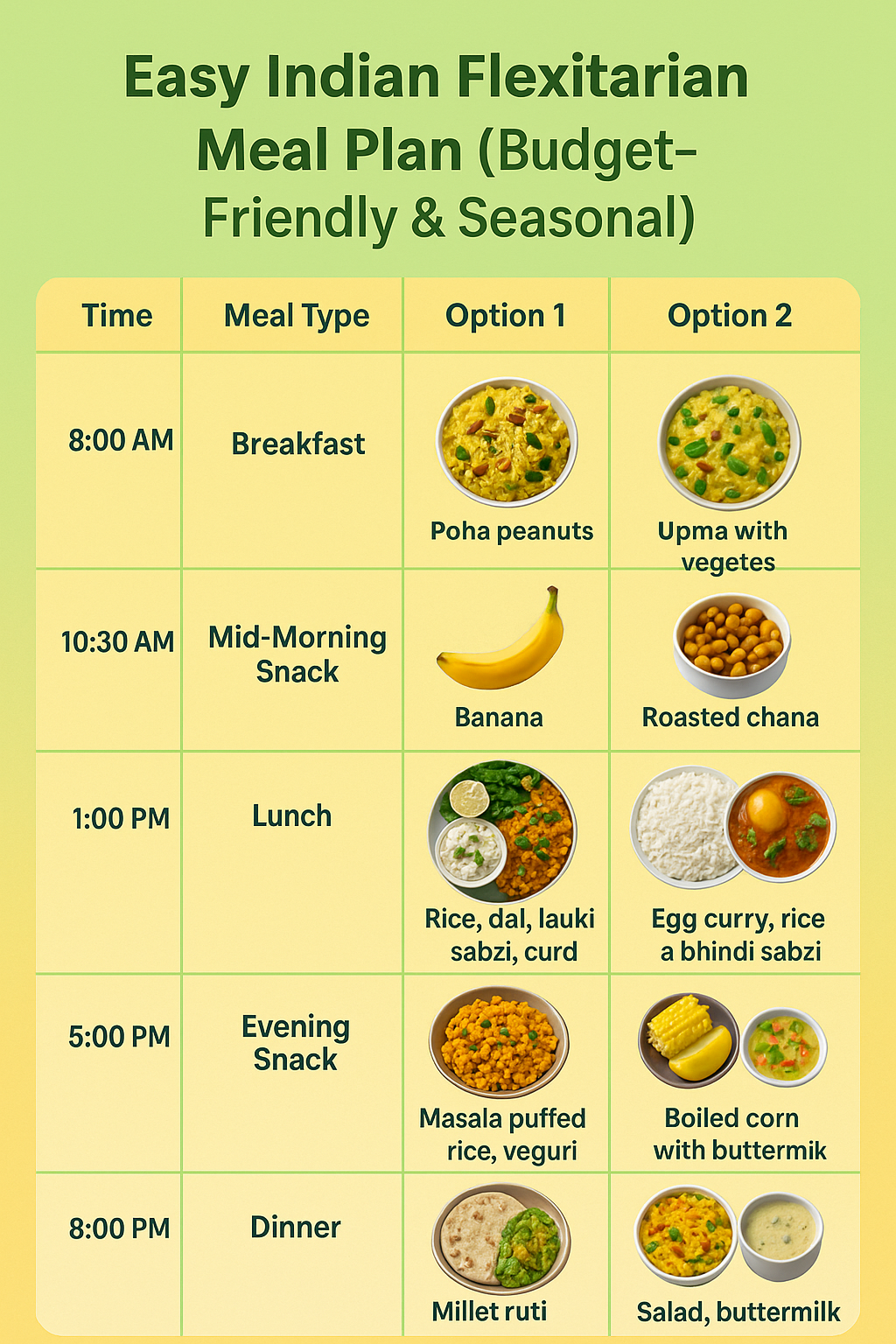
Possible Side-Effects of Flexitarian Diet:
- Low iron or B12 if meat is too limited
- Protein intake may drop without planning
- Risk of omega-3 deficiency
- Overuse of processed plant foods
- Allergies to soy, nuts, or legumes
- Not suitable for strict medical diets
The Emotional Side: Why Guilt-Free Eating Matters:
Let’s be honest. Food choices are emotional. Many people feel shame or guilt after eating something “unhealthy.” Flexitarian eating gives you permission to enjoy food again-without labeling meals as “good” or “bad.”
That kind, flexible mindset helps reduce stress around food and supports long-term consistency, which is more important than short-term discipline.
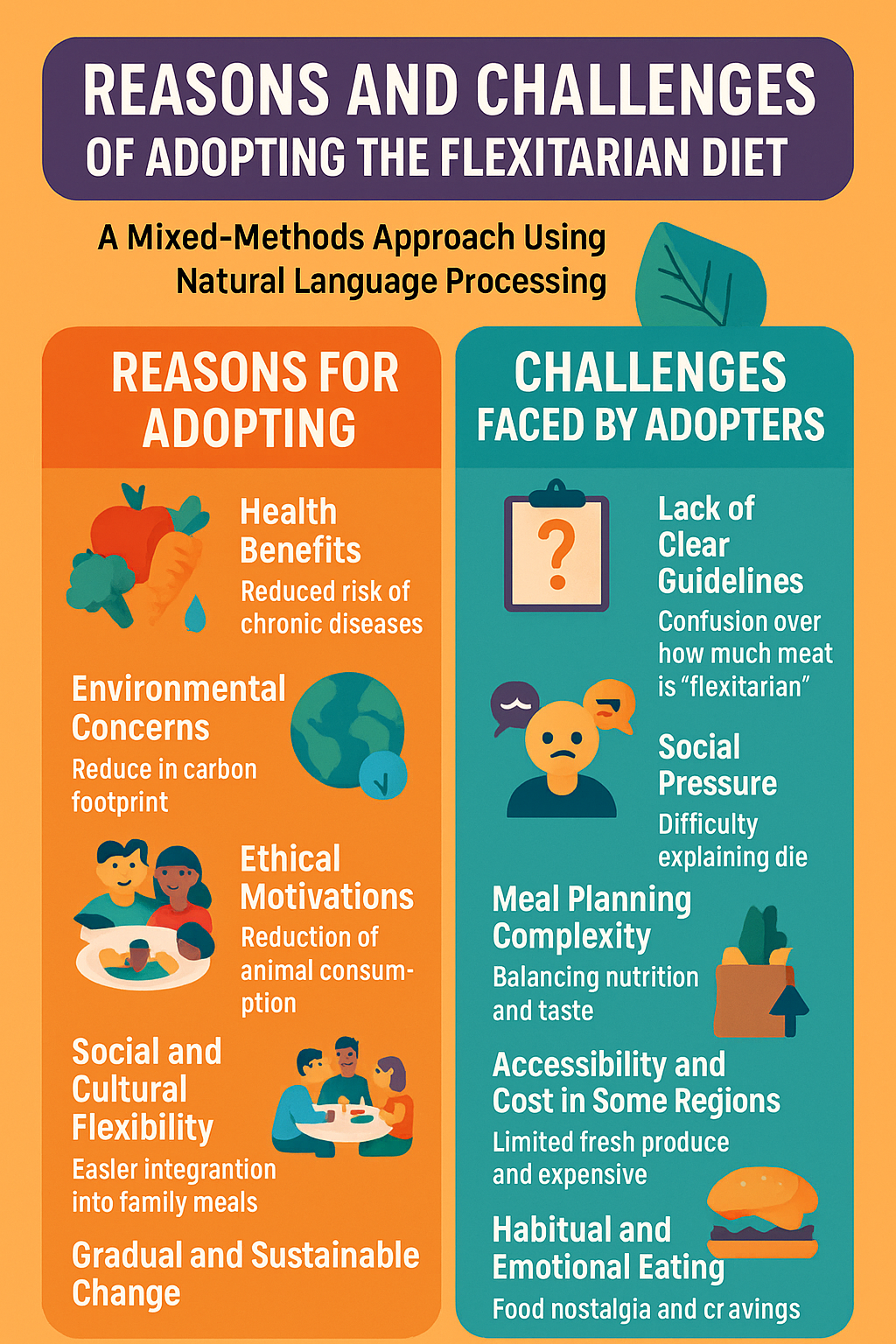
Why The Flexiterian Lifestyle Beats a Strict Diet?
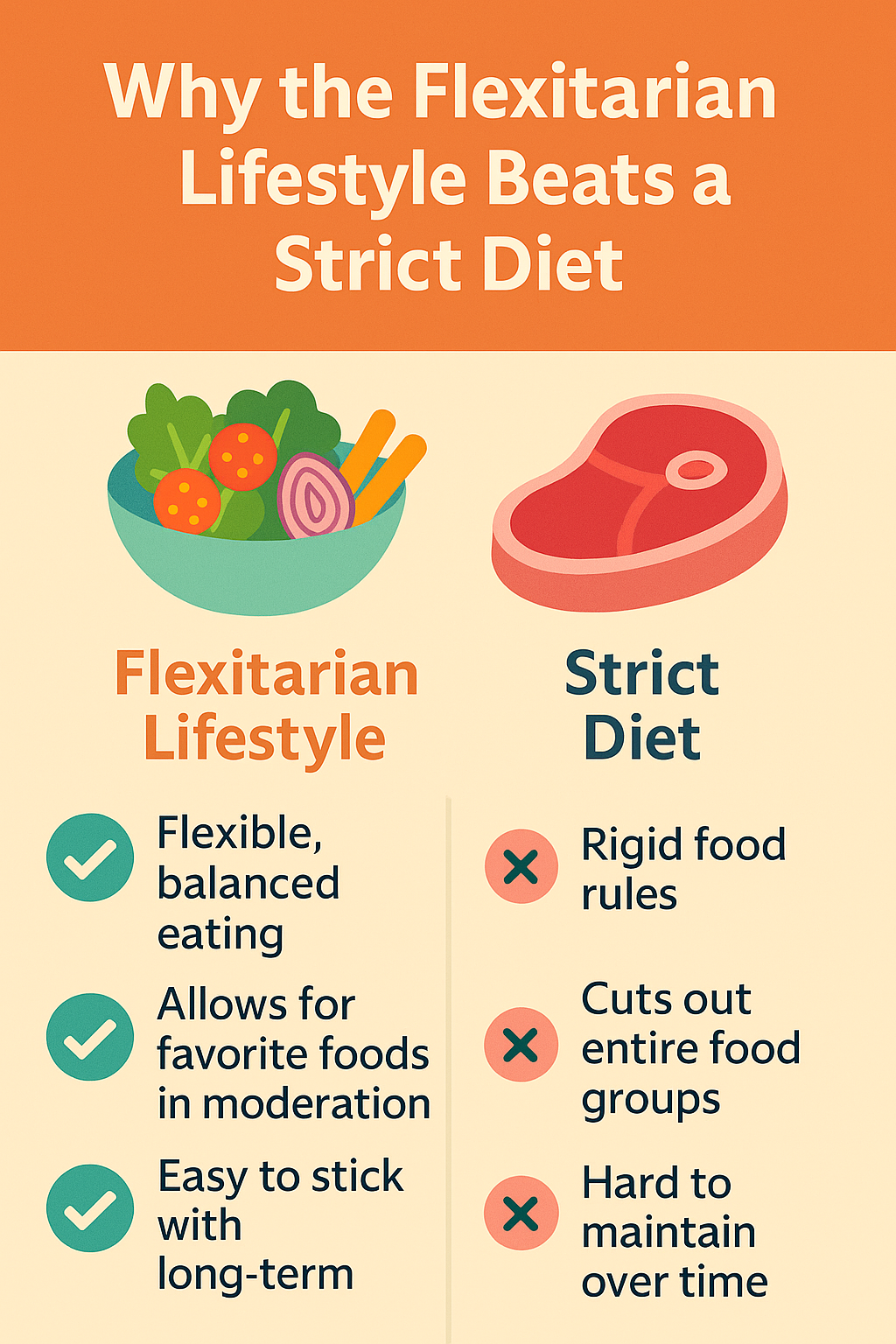
Conclusion :
The flexitarian lifestyle offers a smart, balanced way to eat healthier—without giving up the foods you enjoy. It’s flexible, sustainable, and backed by science. No guilt, no extremes —just better choices for your body and the planet. Whether you’re cutting meat or adding more plants, it’s a simple shift toward long-term wellness. Try it—your plate, your pace.
FAQs :
1. Can I eat meat every day on a flexitarian diet?
Yes, but in moderation. Try limiting red meat to once or twice a week and focus on leaner options like chicken or fish.
2. Will I get enough protein without eating meat all the time?
Absolutely. Beans, lentils, tofu, eggs, yogurt, and nuts are excellent plant-based protein sources.
3. Do I need to count calories or track macros?
No. The flexitarian approach is more about quality than quantity-choosing nutrient-dense foods and mindful portions. But always, consult your dietitian or nutritionist before any actions.
4. Is flexitarian good for kids or families?
Yes. It encourages balanced meals with variety, which is gre family health and picky eaters.
5. Will I lose weight on this diet?
Many people do, as it reduces processed foods and adds more fiber, which helps control hunger.
👉 By. PRIYANKA DAS – Nutrition Content Writing Intern, [ Nutri World ]
